SEADS
Southeast Asia Research Centre
for Digital Tech and Society
All Photos by Stefan Bächtold
Southeast Asia Research Centre
for Digital Tech and Society
WHO ARE WE?
Southeast Asia Research Centre for Digital Tech and Society (SEADS) undertakes scholarly research that advances understanding of digital tech and societies in Southeast Asia. The centre serves as a platform that conjoins academic research with civil society, governments and corporations in ongoing dialogue, exchanges, and collaborations to explore alternatives, and inform the public. SEADS is based at the School of Arts and Social Sciences, Monash University Malaysia, and is funded under the Monash University Malaysia competitive Future Centre scheme.
• Research: We advance scholarship through critical examination of the relationships between digital technologies and human societies in Southeast Asia using humanities and social science approaches
• Reform: We work with corporations, policy institutions and community organisations to bring about reform towards more ethical and inclusive digital futures in Southeast Asia
• Engage: We engage the public on important developments relating to our thematic foci and their implications for communities and citizens in Southeast Asia
• Educate: We develop pedagogical resources aligned to our thematic foci, and serve as a centre for research training in the Southeast Asia region
Contact us ↘
SEADS is located at:
Building 2 Level 6, Monash University Malaysia
Jalan Lagoon Selatan, Bandar Sunway
47500, Selangor, MALAYSIA• Email: [email protected]If you are interested to apply to undertake a PhD with us, please follow the process documented in the poster below.
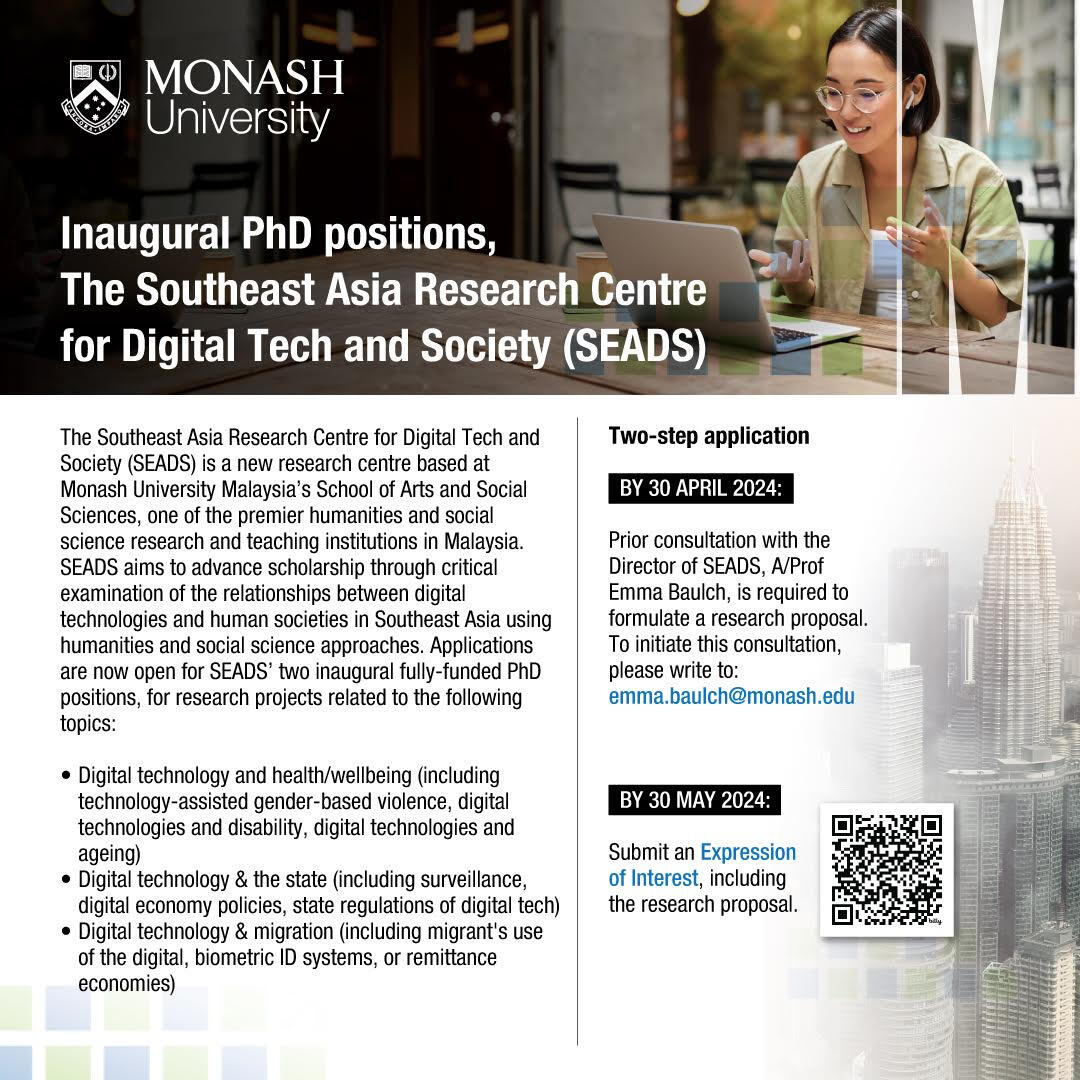

Southeast Asia Research Centre
for Digital Tech and Society
Leadership Team
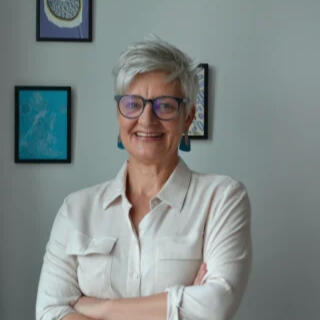
Director
Emma Baulch is Associate Professor of Media and Communications at Monash University Malaysia. Emma researches media and popular culture using cultural studies approaches, focusing specifically on the co-constitution of media technologies and societies in Indonesia and, more recently, Malaysia.
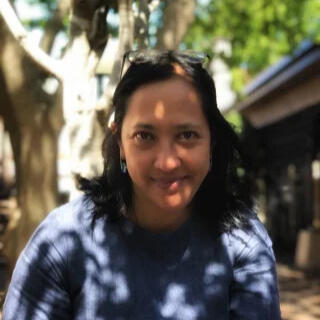
Program Lead
Dyah Pitaloka is Senior Lecturer in Communications and Media Studies at Monash University Malaysia. Dyah’s research explores issues related to social, cultural, political, and policy dynamics of emerging technology, specifically within the context of health and wellbeing, social inequalities, inclusion and exclusion, and justice in communication and media.

Program Lead
Stefan Bächtold is a lecturer at the School of Arts and Social Sciences. His background blends critical academic research with substantial experience as an evaluator, practitioner, and trainer in international development and peacebuilding in Africa, Asia, Europe, and the Middle East.
Advisory Board

Mark Andrejevic is a Professor at the School of Media, Film, and Journalism, Monash University. His research interests encompass digital media, surveillance and data mining in the digital era, and he is particularly interested in social forms of sorting and automated decision making associated with the online economy.
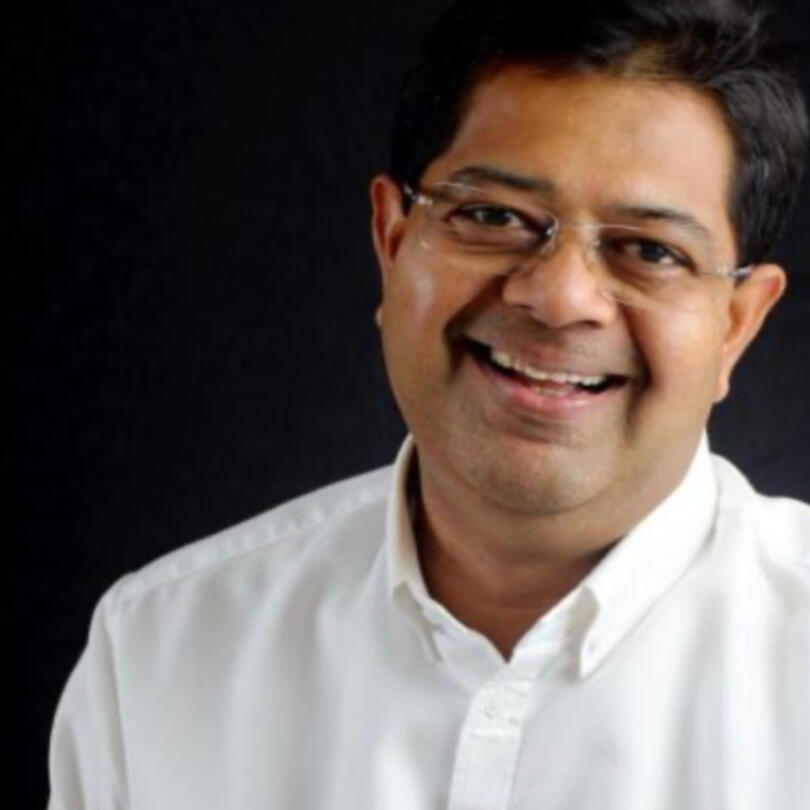
Dr. James Gomez is a political scientist and Regional Director at Asia Centre, a research institute based in Bangkok and Johor which was granted UN ECOSOC Special Consultative Status in 2021. Dr. Gomez has over 25 years of international and regional experiences in leadership roles at universities, think-tanks, inter-governmental agencies and non-governmental organisations.
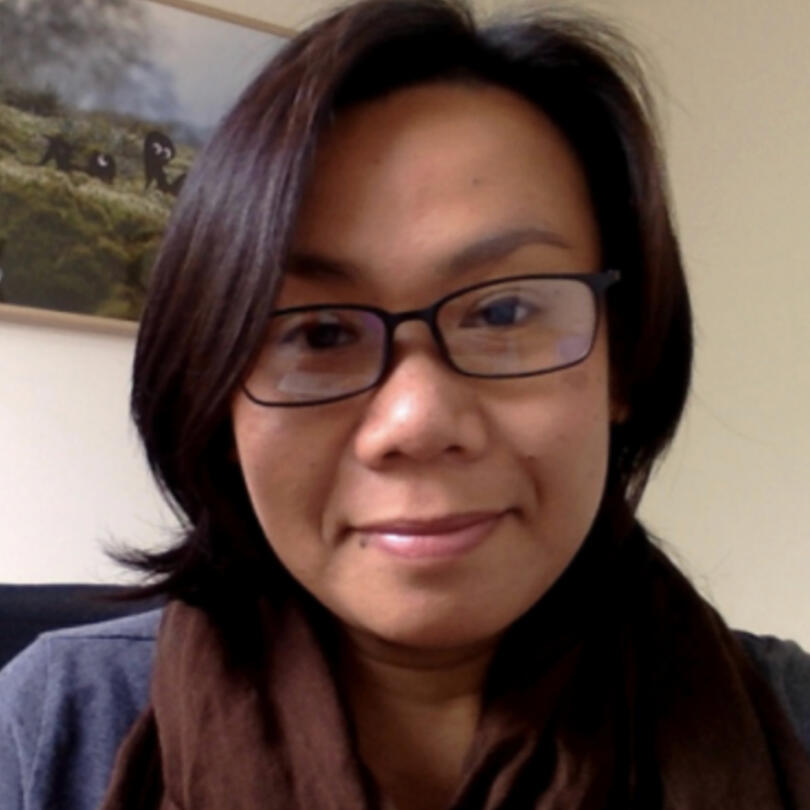
Cheryll Soriano is Professor of Communication in De La Salle University (DLSU) in the Philippines. Prof. Soriano is Principal Investigator of Fairwork Philippines, a part of the global Fairwork network which seeks to advance fair labour conditions in the gig economy across the world.

Tim Unwin is Emeritus Professor of Geography at Royal Holloway, University of London, and also an Honorary Professor at Lanzhou University in China. Prof. Unwin was Secretary General of the Commonwealth Telecommunications Organisation (CTO) from 2011-2015, and was Chair of the Commonwealth Scholarship Commission from 2009-2014, having been a Commissioner since 2004.

Dhyta Caturani is feminist activist who has been deeply involved in the social justice movement in Indonesia for many years. She is the founder of PurpleCode Collective, a feminist collective that focuses on the intersectional issues of feminism and technology and prevents and responds to online gender-based violence, and assists victims.
Members
Digital Technologies, Health and Wellbeing:
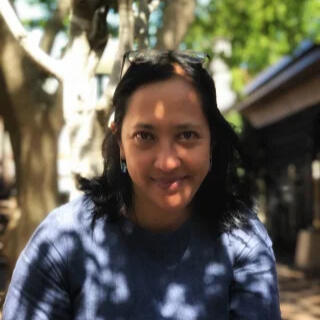
Dyah Pitaloka is Senior Lecturer in Communications and Media Studies at Monash University Malaysia. Dyah’s research explores issues related to social, cultural, political, and policy dynamics of emerging technology, specifically within the context of health and wellbeing, social inequalities, inclusion and exclusion, and justice in communication and media.

Dr. Young-Nam Seo is a media scholar whose research interests lie mainly in Human-Computer Interaction (HCI) and online communication practices. Dr, Seo specializes in quantitative research and physiological measurement such as Galvanic Skin Response (GSR), ElectroEncephaloGram (EEG), and eye-tracking.

Sarah Pink is an design and futures anthropologist and documentary filmmaker. Sarah is currently Professor and Director of the Emerging Technologies Research Lab at Monash, where she engages and innovates interdisciplinary and international research approaches to offer fresh perspectives and realistic future visions and foresight about the role of human futures in shaping the better design, use of new, emerging and possible technologies.

Xavier is an award-winning design researcher focusing on the queer independent games community, Lecturer in Interaction Design at Monash Art, Design and Architecture (MADA).
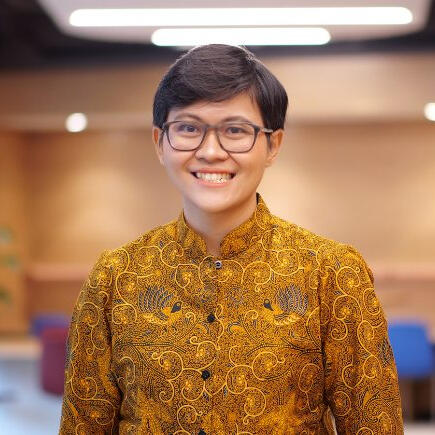
Sabina is Deputy Director for the Monash Herb Feith Indonesian Engagement Centre and Research Fellow for the Monash Indonesia Institute for Advanced Research (MI IFAR). Her research interests include topics about democratisation, political institutions, social movements, and gender politics. While she studies these topics extensively on any regions through a historical comparative approach.
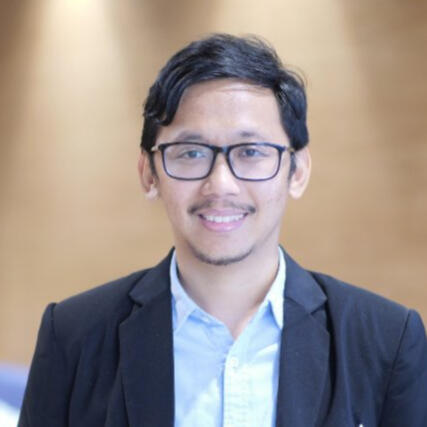
Muhamad Risqi U. Saputra (Risqi) is an assistant professor in Data Science at Monash University, Indonesia. His main research interest revolves around the intersection between machine (deep) learning, computer vision, and cyber-physical systems applied to a wide range of problems including navigation, positioning, mapping, object detection, or semantic segmentation, among others.
Members
Digital Technologies and the State:
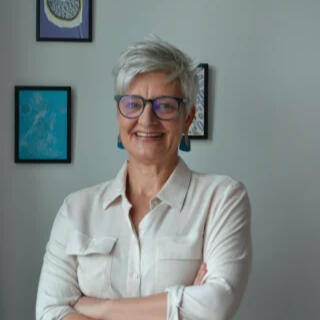
Emma Baulch is Associate Professor of Media and Communications at Monash University Malaysia. Emma researches media and popular culture using cultural studies approaches, focussing specifically on the co-constitution of media technologies and societies in Indonesia and, more recently, Malaysia.

Stefan Bächtold is a lecturer at the School of Arts and Social Sciences. His background blends critical academic research with substantial experience as an evaluator, practitioner, and trainer in international development and peacebuilding in Africa, Asia, Europe, and the Middle East.

Quinton Temby is Assistant Professor in Public Policy at Monash Indonesia. At Monash Indonesia, Dr Temby teaches Foundations of Public Policy and a new unit on Digital Technology Policy. He is excited to be a member of the foundational academic team at Monash Indonesia and to contribute to teaching the next generation of public policy thinkers and practitioners.
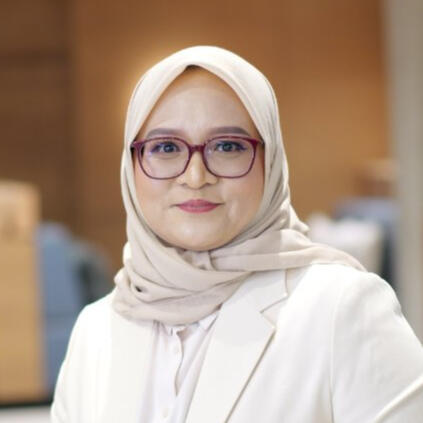
Ika is a trained scholar in the area of social media analytics. Trained in the media and communication field, she believes that a strategic communication plan is vital in promoting public policy and delivering public service. She has experience in consultancy works with various government agencies, especially in policy implementation, service delivery, and policy evaluation.

Kelly Lewis is a Research Fellow at the Australian Research Council Centre of Excellence for Automated Decision-Making and Society (ADM+S), and the Emerging Technologies Lab at Monash University. Her research focuses on the social, political, and cultural implications of digital media technologies, platforms, and data cultures, as well as new and innovative digital methods and critical approaches for studying them.
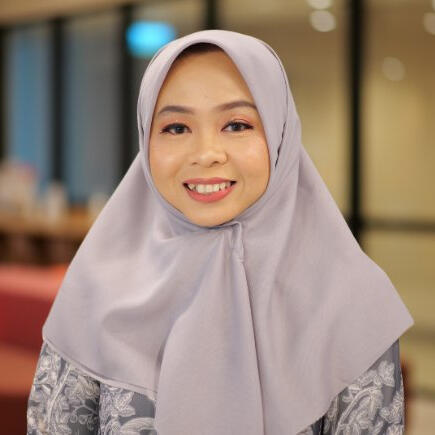
Dr Wijaya conducts research in natural language processing (NLP), with a focus on machine learning, deep learning, and large language models (LLMs) applications in multilingual NLP. Her studies include machine translation (MT), which demonstrates how to leverage well-annotated languages to improve the translation of less-annotated ones and how images, related tasks, data augmentation, and LLMs can be used to improve the representation and translation of languages with little training data.
Associates

Elliott Prasse-Freeman is an Assistant Professor at the Department of Sociology and Anthropology, National University of Singapore. He received his PhD from the Department of Anthropology at Yale University. He has conducted long-term fieldwork in Myanmar, and has a book in print (Rights Refused, Stanford University Press) on Burmese subaltern political thought as adduced from an extended ethnography of activism and contentious politics in the country's semi-authoritarian setting.
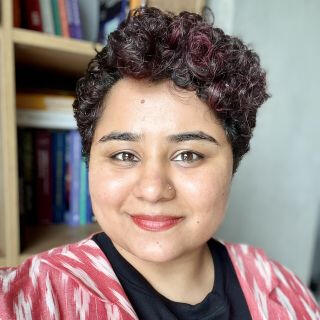
Preeti Raghunath is a Lecturer in Digital Media and Society at the University of Sheffield. Preeti enjoys engaging with lived experiences of policy and practice as well as grounded theorising rooted in them. She has researched and written about critical and deliberative policy studies, critical policy ethnography as method, affect and communication, and sustainable media governance
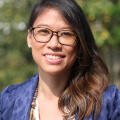
Dr Joanne Lim is Professor in Communications, Media and Cultural Studies at the University of Nottingham in Malaysia. She is also Associate Dean of the Faculty of Arts & Social Sciences. Her research focuses on participatory governance, participatory media (including social media and mobile media), New Communication Technologies, interculturality, youth identities; and civic/political engagement within the Malaysian-Southeast Asian context.

Adrian Athique is Associate Professor and programme leader in Cultural Studies at the Institute for Advanced Studies in the Humanities. Adrian is a graduate in Media Arts from the University of Plymouth and holds a PhD in Asia-Pacific Transformation Studies from the University of Wollongong. has conducted research projects in collaboration with colleagues in India, Malaysia, Thailand and the Philippines. He is currently active in extensive networks across the region, notably in events and publications stemming from his two major projects: Digital Transactions in Asia (2017-) and The Indian Media Economy (2013-).
PhD Candidates
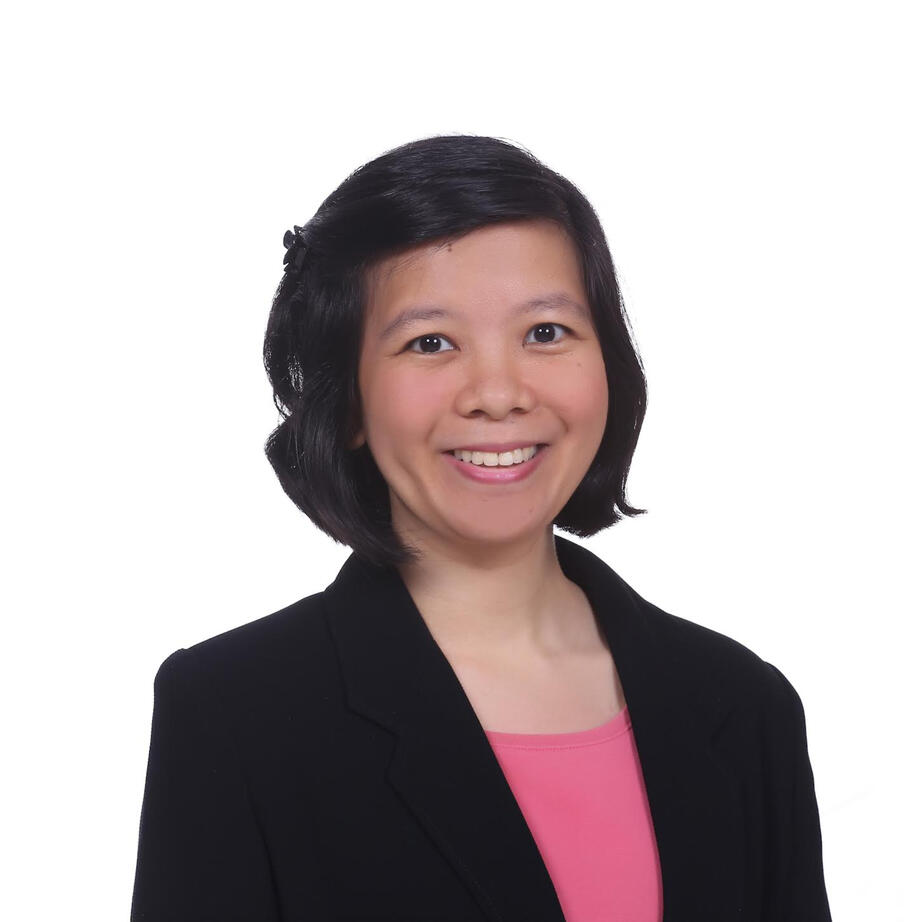
Engaging Older Groups in Co-designing Inclusive and Sustainable Digital Health Technologies
Rose’s research seeks to understand Malaysia’s community-dwelling OAs’ perceptions and motivations towards the use of digital health technologies (DHTs), in pursuit to develop an inclusive and sustainable DHT that promotes optimal ageing and improves quality of life. Engaging OAs and other stakeholders in this participatory five-stage co-design thinking approach establishes social science as the pivotal intersection within this interdisciplinary research involving design technology and health science. Through focusing on user- experiences and incorporating the voices of older DHTs end-users, valuable insights from this research can be used to develop viable DHTs. This human-centricity way may offer new lens of seeing OAs as assets, enabling the community to optimally age in place as technology continues advancing.
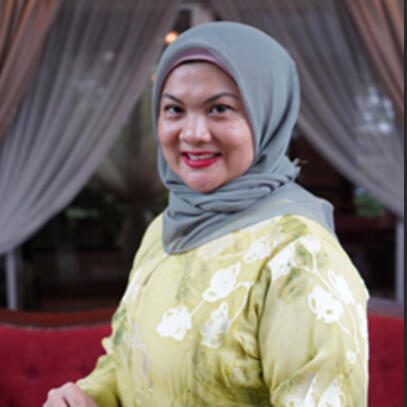
Everyday Uses of Mobile Instant Messaging (MIM) by Older Adults in Malaysia
In this study, Kaflina investigates the evolution of Malaysian older adults' unique digital literacies by examining their everyday interactions on Mobile Instant Messaging platforms such as WhatsApp . The study draws on online observations of three (3) WhatsApp groups over eight (8) months, and is supported by twenty (20) in-depth interviews. Analysing their daily social exchanges enables further understanding of the digital literacy skills, knowledge, and attitudes required to effectively navigate, use, and create information using these digital tools. Findings show how older adults’ daily messaging routines contribute to their social well-being and, by extension, their literacies. This study extends the existing scholarship on digital inclusion among older adults by contributing the perspectives from Southeast Asia
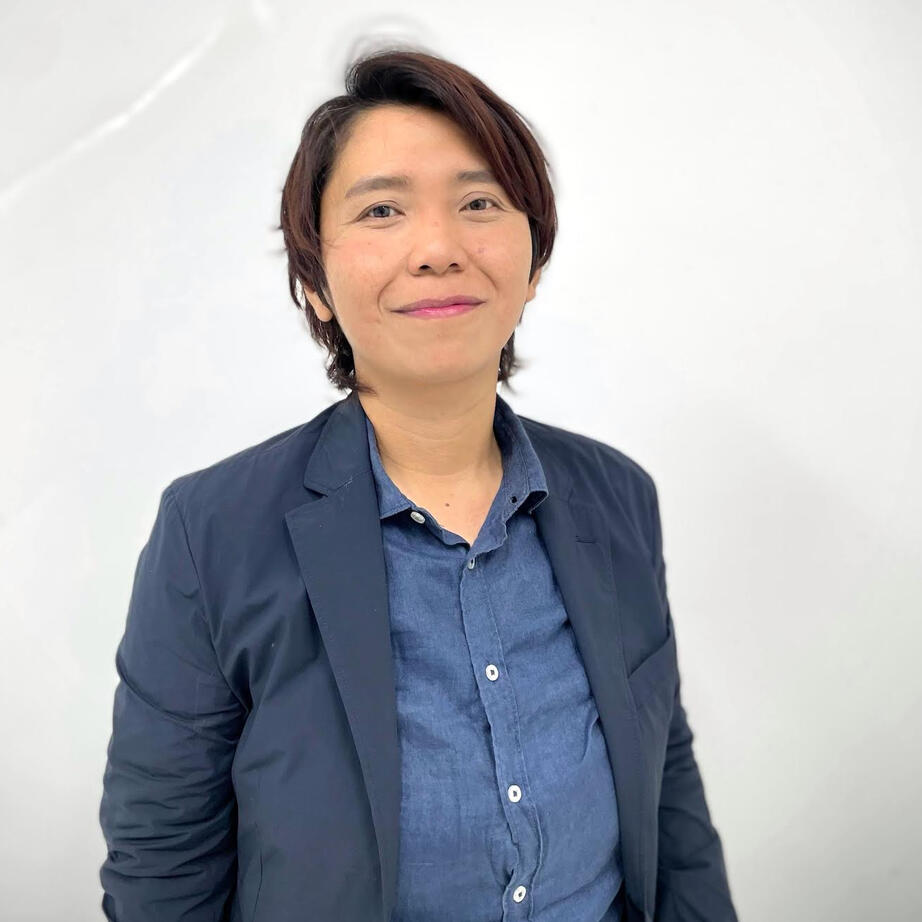
Safety is in the eyes of the beholder: Alternative data governance from the perspective of marginalized communities.
Frenia's research critically examines the symbiosis between technology and public health in the post-COVID-19 era. Digital transformation of health care services and the health sector is reshaping public experience of health and health outcomes. One particular example is SATUSEHAT Super App, previously known as COVID-19 tracing app PEDULI LINDUNGI, Indonesia’s government platform, which aims to seamlessly integrate health services and electronic medical records, reshaping the healthcare landscape. However, technological advancement demands a parallel commitment to responsible data governance. The core of Frenia's investigation lies in developing an alternative data governance model that holistically considers societal concerns, with a specific focus on marginalized communities. The study emphasizes the pivotal role of patient agency within data governance, aspiring to foster fair health outcomes for all. In essence, this research underscores the urgency of establishing ethical and responsible data practices to navigate the dynamic terrain of digital health services.
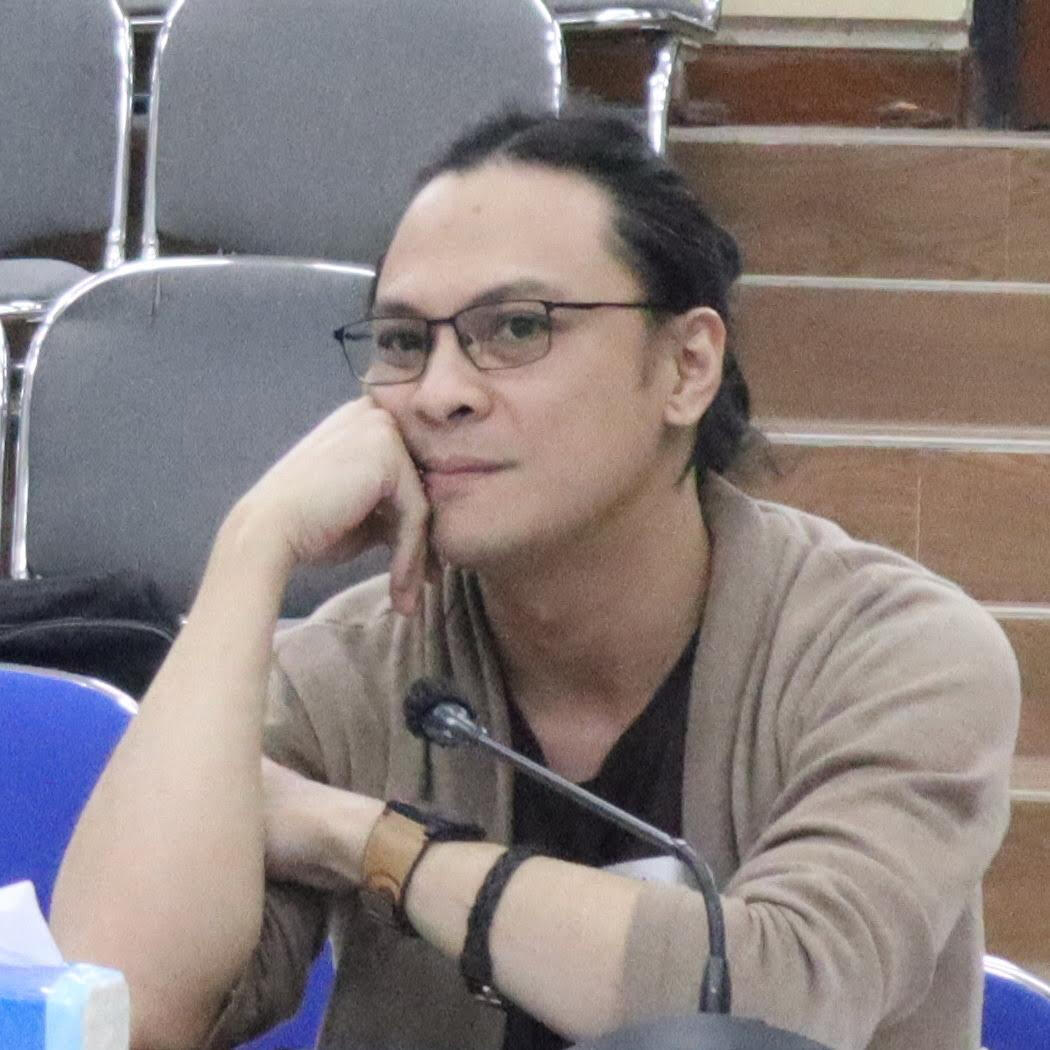
Monetary Securitisation: ASEAN's Blockchain Geoeconomics beyond Hedging
Hizkia’s research explores the many ways emerging technologies, specifically the Distributed Ledger technology (DLT) such as blockchain and cryptocurrencies, shape and are shaped by the global power struggle for survival involving not only states, but also non-state actors such as corporations and communities. This research looks into the various strategic manoeuvres of key state actors in the Southeast Asian region in engaging politically with the socio-technical reality of “the crypto.” Set against the backdrop of the ongoing crises in both international monetary order and global balance of power, it probes into the extent to which these manoeuvres are influenced by the crises and in turn shaping the regional face of the global geopolitical-economic contestation. The research attempts at a novel understanding of the global order and crisis that challenges traditional International Relations, both mainstream and critical, by shifting historical agency away from power and capital towards the people.
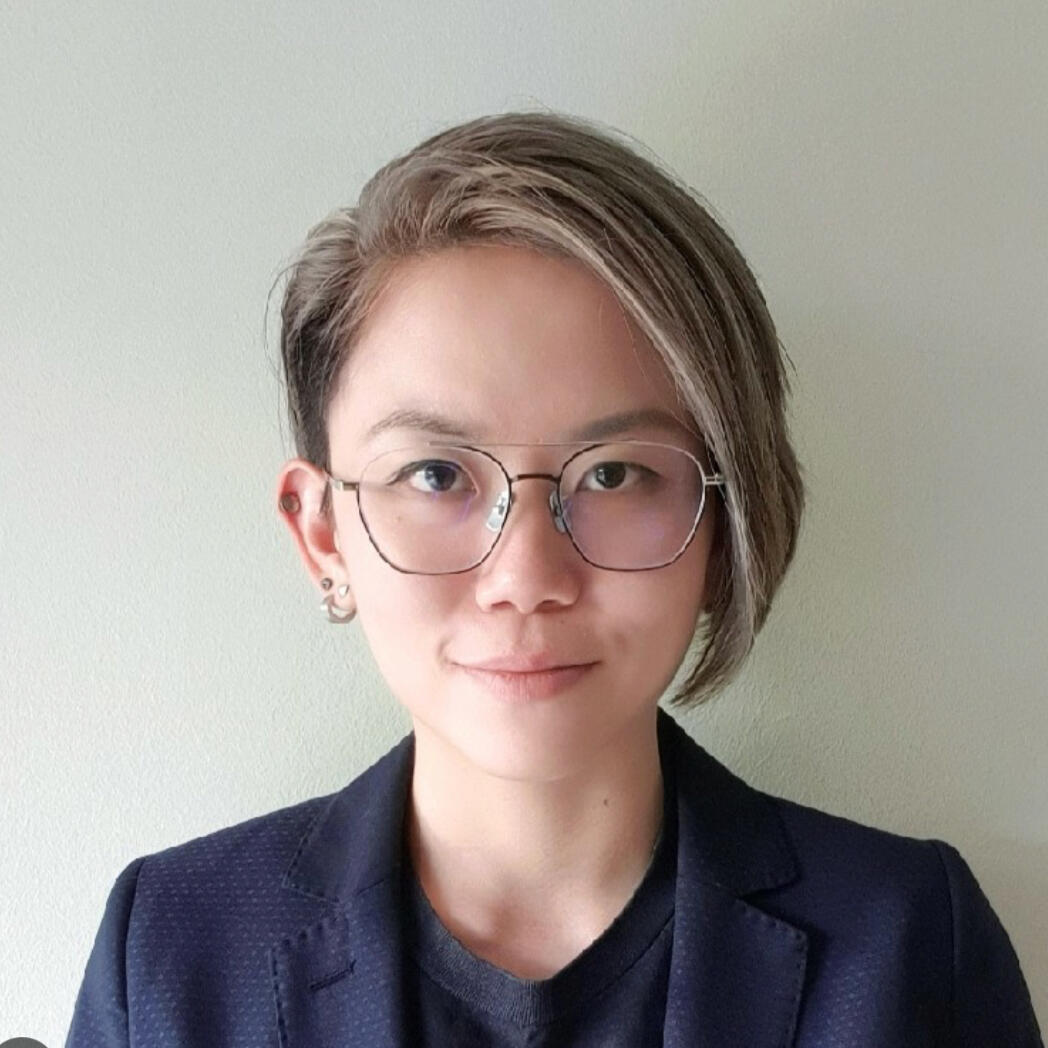
Queer Sinophonicities Online: Exploring Queer Chinese Malaysians’ Internet-mediated
Negotiations of Identities
Chloe’s research examines the online practices of young queer Chinese Malaysians in the early- to mid-2000s, a time that marked a notable increase in internet penetration and absorption across Malaysia. In what ways did newly-gained access to the internet, particularly during a crucial period of identity development and exploration, facilitate the negotiation of complex tensions between ethnic, national, and sexual identities? How did these early online practices subsequently influence their social, cultural, and political choices from then until now? Through interviews and textual analysis, this project looks at narratives of queer Chinese Malaysians and aims to contribute towards the fields of queer digital media and Sinophone studies.
Southeast Asia Research Centre
for Digital Tech and Society
SEADS in the news
Virtual Realities, Real Consequences: Exploring Users Experiences and Regulatory Challenges
9th April, The XYZ Experiment.
In this episode, we delve into the complex landscape of the metaverse, where virtual realms collide with real-world issues.
Dyah Pitaloka, PhD joins us again this time to discuss the rise of gender violence within digital environments and the need for regulation to ensure the safety and well-being of users.With projections suggesting a significant portion of the global population will soon inhabit the metaverse, we explore the ethical implications and potential consequences of this rapid shift.Tune in to gain insights into how we can navigate these challenges, and shape a more inclusive and responsible digital future.
Seminar Series
Deepfake Creativity and Sex Lives as Morphing Techno-Politics
Katrien Jacobs, Adjunct Associate Professor in Cultural Studies at the Chinese University of Hong Kong. Tuesday 2 April.
Deepfakes are synthetic media in which a person in an existing image or video is replaced with someone else's facial features and speech patterns. Deepfakes are being produced in several industries, including film and video, games, fashion and e-commerce, while the number of deepfakes that are circulating online have been soaring on popular platforms and designated Apps. such as DeepFaceLab, Zao, and FaceApp. Several corporations have issued reports about the threat of this technology and its capacity towards “malign creativity” in representing individuals and public figures. (Ajder 2019, Jankowics 2021) The technology has been used for purposes of humor, political satire and technological-artistic bravery, as well as disinformation and hate-speech. Specifically, the commodification of deepfake technology in recent years has led to a “pandemic” of sexualized deepfake featuring female public figures. The talk will make references to deepfake incidents involving journalists and activists, while also discussing strategies of coping and resistance—or how to reclaim synthetic media towards artistic, humorous, and gender-inclusive practices.
Katrien Jacobs is Adjunct Associate Professor in Cultural Studies at the Chinese University of Hong Kong. She is also an Associate Researcher in the Department of Languages and Cultures at the University of Ghent. Jacobs has lectured and published widely about sexuality and gender in and around digital media, contemporary arts and online activism. She received several Hong Kong government-funded GRF grants and authored four books about Internet culture and gender/sexuality. In 2022 she published Tit-For-Tat Media: The Contentious Bodies and Sex Imagery of Political Activism (London and New York: Routledge, 2022). The book examines the visual-sexual turn in social media discourses in the field of online activism with a particular focus on the extraordinary protest years of 2018-2020. Presenting a socially engaged theory of “tit-for-tat media” and including case-studies on activist movements such as the Euro-American alt-right, the pro-democracy movement in Hong Kong, and revolutionary artists in China, this study reveals how visual cultures, including gendered or sexualized imagery, are utilised to influence public perception. Her work can be found here.
Ludic cybermilitias: shadow
play and computational propaganda
in the Indonesian predatory state
Pradipa Rosidi, Engage Media. Tuesday, 6th February.
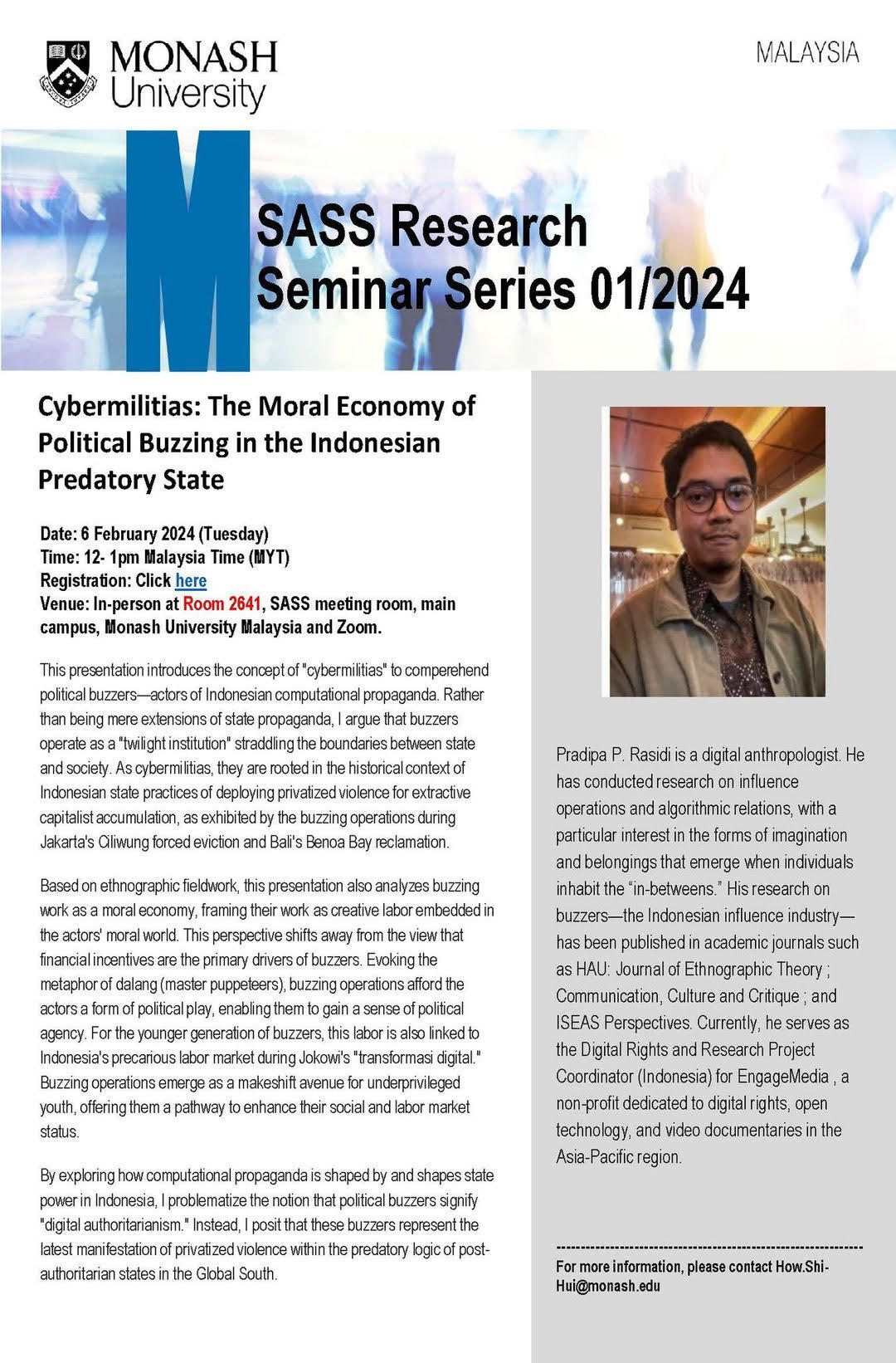
The presentation examines “political buzzers”—actors of Indonesian computational propaganda. Rather than an extension of state propaganda, it argues that buzzers are a “twilight institution” straddling the boundaries between state and society. As cybermilitias, they are rooted in the historical conjuncture of Indonesian state practices in deploying privatized violence for extractive capitalist accumulation, exhibited by two cases in the presentation: the reclamation of Benoa Bay in Bali and the Ciliwung forced evictions in Jakarta. Informed by ethnographic fieldwork, then paper delves into buzzers’ experience of computational propaganda as an avenue for political agency. They conceive their clandestine labor into a play, conjuring the political metaphor of dalang (master puppeteers) pulling strings from behind the scenes. These shadow play theatrics constitute the ludic aspect of buzzers as ludic cybermilitias. By exploring how computational propaganda is shaped by and shapes state power in Indonesia, the paper problematizes the notion that political buzzers signify “democratic regression” or “digital authoritarianism.” Instead, buzzers represent the latest manifestation of privatized violence within the predatory logic of post-authoritarian states in the Global South.Pradipa P. Rasidi is a digital anthropologist. He has conducted research on influence operations and algorithmic relations, with a particular interest in the forms of imagination and belongings that emerge when individuals inhabit the “in-betweens.” His research on buzzers—the Indonesian influence industry—has been published in academic journals such as HAU: Journal of Ethnographic Theory ; Communication, Culture and Critique ; and ISEAS Perspectives. Currently, he serves as the Digital Rights and Research Project Coordinator (Indonesia) for EngageMedia , a non-profit dedicated to digital rights, open technology, and video documentaries in the Asia-Pacific region. Register here.
Southeast Asia Research Centre
for Digital Tech and Society

SEADS Inaugural PhD positions, The Southeast Asia Research Centre for Digital Tech and Society (SEADS): Apply hereSEADS Inaugural Post-doctoral Fellowship: Coming Soon
Southeast Asia Research Centre
for Digital Tech and Society
Digital Technologies, Health and Wellbeing
Program Lead: Dyah Pitaloka
This program examines the intersection of health, technology and society. By adopting a social science approach, the work of the program moves beyond technological solutions to health-related problems, and seeks to understand how social, political, cultural, and technological factors intersect in ways that affect the health and wellbeing of the community, especially marginalised populations in Southeast Asia.
Funded Project
Regulating Sexual VAWs in Metaverse: An Interdisciplinary Diagnosis
Funded Amount: $100,000 USD
Time Frame: 2023 - 2024
Funder: 2022 Meta AR/VR Policy Research
Investigators: Dyah Pitaloka, Young-Nam Seo, Ika Idris, Risqi Saputra, Indriaswati Saptaningrum
This project aims to unpack and to address the necessity of constructing trusted ecosystems for users, especially women, to safely access the Metaverse/VR. It addresses questions related to privacy, responsible data handling, inclusive design and the ethical navigation of the Metaverse/VR. Multiple stakeholders' participatory and co-collaborative dialogue are central in this study. The data produced would hopefully 1) inform policy makers and developers on how to develop the ecosystem that will ensure the safety of women's access and use of AR/VR technology & help governments legitimise the regulation of sexual violence in metaverse; 2) offer several effective programs/future policies to prevent sexual violence in metaverse.
Digital Technologies and The State
Program Lead: Stefan Bächtold and Emma Baulch
This program examines how mobile digital technologies are involved in rearranging or reproducing power structures in Southeast Asia, such as when powerful actors (e.g., governments, tech companies) connect (e.g. building network infrastructure) or disconnect (e.g. internet shutdowns, platform moderation) populations, when states deploy digital tech to enable processes of datafication and for governing population movements, but also when people's everyday uses of technology enhance their agency and political participation.
Funded Project
Building policy networks for regulating digital tech in Southeast Asia
Funded Amount: Funded amount: AUD$9.996
Timeframe: 2024 (12 months)
Funder: Monash University Incubator scheme, Build category
Investigators: Stefan Bächtold, Quinton Temby, Emma Baulch, Dyah Pitaloka
This program examines how mobile digital technologies are involved in rearranging or reproducing power structures in Southeast Asia, such as when powerful actors (e.g., governments, tech companies) connect (e.g. building network infrastructure) or disconnect (e.g. internet shutdowns, platform moderation) populations, when states deploy digital tech to enable processes of datafication and for governing population movements, but also when people's everyday uses of technology enhance their agency and political participation.
Publications
2024. Baulch, E., Johns, A and Matamoros-Fernández, A. A critical review of media and communications scholarship on messaging apps. in M.Skoric and N. Pang (Eds.) Research Handbook on Social Media and Society. Edward Elgar2023. Johns, A., Matamoros-Fernández, A, Baulch, E. WhatsApp: From a One-To-One Messaging App to a Global Communication Platform. Polity Press2023. Bächtold, S. Blackouts, Whitelists, and ‘Terrorist Others’: The Role of Socio-technical Imaginaries in Myanmar. Journal of Intervention and Statebuilding, 17(4), 394-414. https://doi.org/10.1080/17502977.2022.21529402023. Deejay, A., Wells, T., Henne, K., & Bächtold, S. Bad adopters or bad proponents of technology? Facebook and the violence against Muslims in Myanmar. Third World Quarterly, 1-16. https://doi.org/10.1080/01436597.2023.22858082023. Rohman, A., & Pitaloka, D. (2023). Contact tracing apps, nationalism, and users with disability in the Global South: The faith in state and collective objective. Mobile Media & Communication, 11(2), 230-247. https://doi.org/10.1177/205015792311589082023. Rohman, A., Pitaloka, D., Erlina, E., Dang, D., & Prastyani, A. (2023). Disability data and its situational and contextual irrationalities in the Global South. Big Data & Society, 10(1). https://doi.org/10.1177/205395172311605232023. Rohman, A., & Pitaloka, D. (2023). Disconnected and disabled during the pandemic: Toward more inclusive pandemic response plans in the Global South. Journal of Librarianship and Information Science, 0(0). https://doi.org/10.1177/096100062312076572023. Rohman, A., Dang-Pham, D., Pitaloka, D. et al. A continuum of context in informational privacy transmissions: insights from people with disabilities in Vietnam. Univ Access Inf Soc (2023). https://doi.org/10.1007/s10209-023-01021-x2022. Seo, Y., Oh, P., & Kil, W. Y. ‘Into the wolves’ den: an investigation of predictors of sexism in online games’. Behaviour and Information Technology, 41(8), 1740-1754. https://doi.org/10.1080/0144929X.2021.18992872022. Bächtold, S. The smartphone and the coup. How Myanmar’s conflicts are entangled with digital technologies, policies and violence. International Journal of Public Policy, 16(5/6), 293-310. https://doi.org/10.1504/IJPP.2022.1274282022, August 19. Idris, I. and Pitaloka, D. Indonesia’s ‘Super Apps’: will they be another waste of state budget? The Conversation https://theconversation.com/indonesias-super-apps-will-they-be-another-waste-of-state-budget-1887022022, 15 November. Hazim, N., Krishnan, L., Sharma, P., Baulch, E., Raghunath, P., & Bächtold, S.How big data and algorithms strengthen and threaten freedom, justice and development. The Edge Markets.2022. Baulch, E., Matamoros-Fernández, A., & Suwana, F. Memetic persuasion and WhatsAppification in Indonesia’s 2019 presidential election. New Media & Society, 0(0). https://doi.org/10.1177/146144482210882742021. Pitaloka, D. & Martin-Anatias, N. "We don't want to cause public panic": pandemic communication of the Indonesian Government responding to COVID-19. In J.C. Pollock & D.A. Vakoch (Eds.) COVID-19 in International Media: Global Pandemic Perspectives,Taylor & Francis, p. 103-116.2020. Bächtold, S., Bastide, J., & Lundsgaard-Hansen, L. Assembling Drones, Activists and Oil Palms: Implications of a Multi-stakeholder Land Platform for State Formation in Myanmar. The European Journal of Development Research, 32(2), 359-378. https://doi.org/10.1057/s41287-020-00267-y2020. Baulch, E., Matamoros-Fernández, A., Johns, A. 10 years of WhatsApp: The role of chat apps in the formation and mobilization of online publics special issue of First Monday2019. Athique, A. and Baulch, E. Digital Transactions in Asia: Economic, Informational, and Social Exchanges, Routledge2019. Baulch, E., Flew, T., Li, Luzhou. The Shifting Institutional Bases of Digital Asia Studies: Communication, Culture, and Governance in Asia’, International Journal of Communication 13(2019): 4579–4585 https://ijoc.org/index.php/ijoc/article/view/10994/28002019, March 13. Johns, A., Matamoros Fernandez, A. and Baulch, E. Becoming more like WhatsApp won’t save Facebook’s woes: here’s why. The Conversation 2019 https://theconversation.com/becoming-more-like-whatsapp-wont-solve-facebooks-woes-heres-why-1133682017, July 13. Pramiyanti, A. and Baulch, E. Hijabers of Instagram: The Muslim women challenging stereotypes The Conversation https://theconversation.com/hijabers-of-instagram-the-muslim-women-challenging-stereotypes-794162018. Baulch, E., & Pramiyanti, A. Hijabers on Instagram: Using Visual Social Media to Construct the Ideal Muslim Woman. Social Media + Society, 4(4). https://doi.org/10.1177/20563051188003082017. Baulch, E., Watkins, J., Tariq, A. mHealth in Asia: Grassroots challenges and practical interventions. Springer 10.1007/978-94-024-1251-2 (CC-BY-ND)